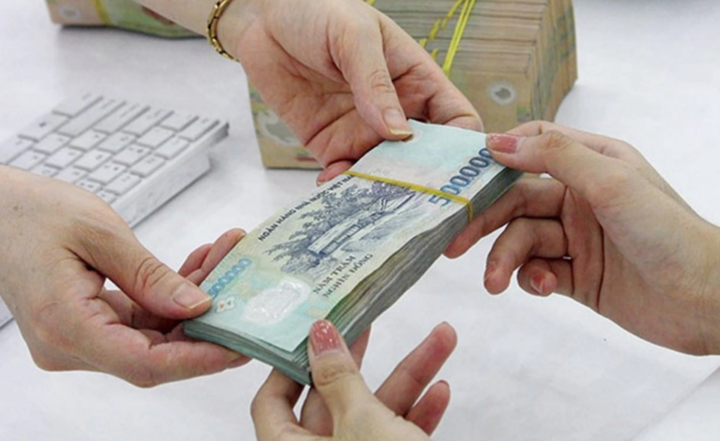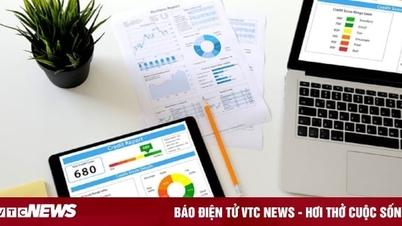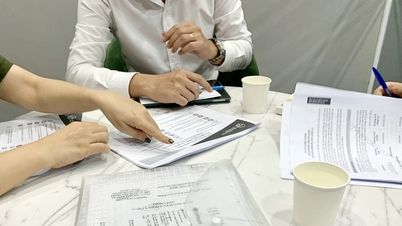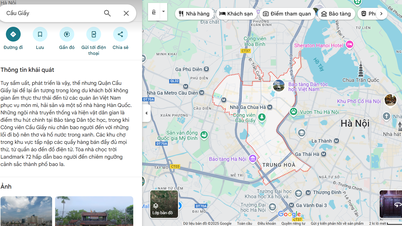Loan limit and basis for determining loan limit
The loan limit is the maximum amount that a bank or financial company can lend to a customer. When determining the loan limit, no matter how much the individual customer needs, they can only borrow less than or equal to the specified amount. They absolutely cannot borrow more than the limit unless the bank proactively increases the loan limit for the customer.
This loan limit applies to both mortgage and unsecured loans. In particular, for unsecured loans, which are loans based on the borrower's reputation, determining the loan limit is especially important.

In fact, each bank has a different way of determining the loan limit, but in general, it will be based on two factors: the customer's income and the loan period. If the customer has a high and stable income for a long time, the loan limit will be high, the loan period will be long, the loan interest rate will be low and vice versa.
Although many banks say that the unsecured loan limit can be up to 1 billion VND in 10 years, in reality, many customers can only borrow 20 to 30 million in 3 years and the maximum limit is usually only for VIP customers, with good transaction history and stable financial capacity. Therefore, those who are borrowing from a bank for the first time should not put too much hope on being able to borrow the full limit mentioned in the loan package.
Is the loan limit really beneficial for both parties?
For banks, loan limits help control loan risks. The risk that banks are most wary of is that customers borrow more than they can afford to repay, leading to the inability to repay or intentional defaulting on the loan.
In addition, the credit room, or the total amount of money that the bank can lend, is limited, so setting a maximum loan limit for each individual also helps the bank to approve loans to more customers than just focusing on a certain number of people. Finally, setting a maximum loan limit also helps the bank manage and operate capital more effectively.
On the customer side, at first hearing, setting a loan limit brings a lot of discomfort, especially for those who need to borrow a lot or borrow suddenly. However, in general, the loan limit is really beneficial for customers. First and foremost, it helps customers recognize their ability to repay debt so that they can accurately determine the amount of money they should borrow, avoid borrowing massively and then not being able to repay, seriously affects their lives.
Legal experts also say that if a customer borrows and does not repay, especially if he intentionally does not repay, he can be prosecuted for the crime of abuse of trust to appropriate property.
What to do when the loan limit is not enough to meet the needs?
This is the question that most customers ask because in life, everyone has the need to borrow, even borrow a lot. Experts advise that workers need to know how to divide and manage their income effectively right from the time they receive their first salary to reduce their dependence on bank loans. This is the most fundamental solution.
If you still have to borrow from the bank, you need to have an effective spending plan and a clear repayment plan, even having to “tighten your belt” to pay off the debt. After a period of serious debt repayment, the loan limit will be increased, especially with unsecured loans. As for mortgage loans, the loan limit is usually determined based on the actual value of the property, so it is difficult for the bank to increase the loan limit higher than the value of the property.

Finally, if you still need to borrow more than the limit approved by the bank, you should look for other forms of loans. The reason is that the data of banks is linked at the National Credit Information Center of Vietnam (CIC), so all banks will know the total amount that the customer has borrowed as well as their credit history.
At that time, customers can no longer borrow unsecured loans but can only mortgages. However, banks often prioritize accepting mortgages of high-value assets such as cars and real estate, and it is also difficult to grant additional credit limits, which somewhat limits the ability to borrow more.
At this time, customers can choose the form of mortgage loan, simply called pawn. This is a legal form of loan, but recently, many pawn shops have developed spontaneously, lending irresponsibly, leading to many frustrations. Therefore, if you need to borrow in this form, you need to choose reputable lending units such as the F88 pawn shop chain.
The advantage of this pawn shop chain is the transparency of interest rates, loan costs and no extra charges. However, the limitation of this pawn shop chain is that it currently only accepts motorbikes and cars as collateral, not other common assets such as mobile phones, computers or SIM cards.
Finally, it should be noted that pawnshops' loan limits are also based on the value of the collateral and the interest rates are somewhat higher than bank interest rates.
Bao Anh
Source










































































































Comment (0)